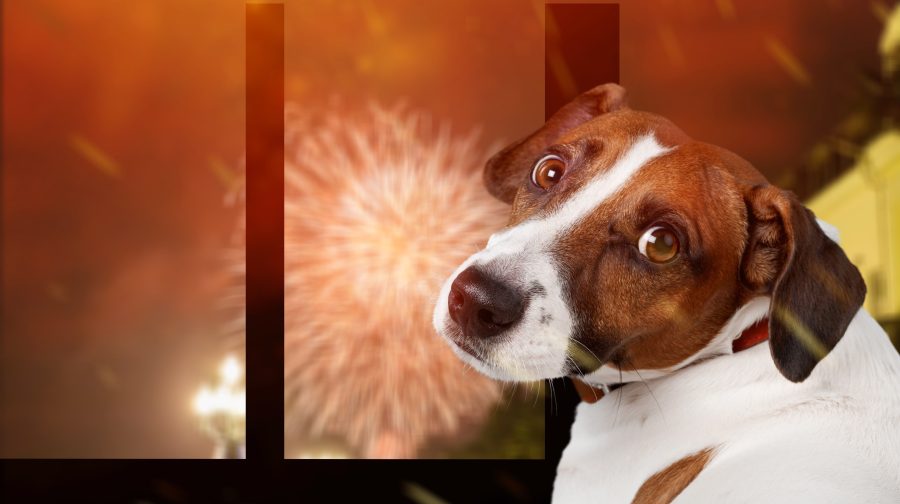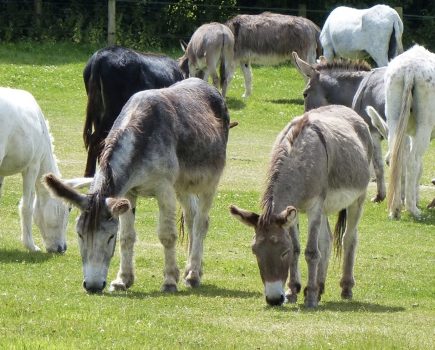The Country Smallholder’s network of experts respond to a concerned reader in relation to bonfire night…
QUESTION: My smallholding is just on the outskirts of a village and so we dread the fifth of November and wish people did not want to remember it – at least not with very loud banging fireworks. I’m also terrified that a stray firework will get into the yard and set fire to hay or straw. Is there anything we can do? I am sure we have thought of most things, radio on in the yard, lights on and being there with the animals and poultry.
ANSWER: One person’s fun-filled evening really can be another’s nightmare. We do try to get people to understand this by being as open as we can to neighbours visiting and meeting our animals and chickens. We talk about the joys of a ‘silent firework’ evening which is catching on not only for livestock and wildlife but also for children and people with mental health issues. This excessive banging seems to be a relatively new thing as I can’t remember this sort of thing when I was a child.
As for the cats and dogs, there is so much advice out there and if your cat or dog is particularly worried, I do think that a phone call to the vet surgery and a conversation with the vet or one of the nurses will help.
Did you know that you can’t let fireworks off between 11pm and 7am? The only exceptions are Fireworks Night, when the cut-off is midnight, and Diwali, New Year’s Eve and Chinese New Year, when it’s 1am. You can only buy fireworks (including sparklers) from registered sellers for private use on these dates:
• 15 October to 10 November
• 26 to 31 December
• 3 days before Diwali and Chinese New Year
At other times you can only buy fireworks from licensed shops. Check out www.gov.uk/fireworksthe-law
Also you should check with neighbours if they are having a firework party so you can be prepared. Our neighbours both sides had a massive party one year without telling us they were going to do so, and it was upsetting to think they had not thought about the welfare of our animals.
The RSPCA advice for people generally on how to reduce the impact of fireworks on animals should be widely shared, especially the advice about checking bonfires. Imagine the horror of hibernating or sheltering in a pile of wood and branches only to be caught in the middle of an inferno. And it’s a burn out for any sheltering insects too. Best not to build the bonfire more than 24 hours in advance.
The RSPCA say “If you want to enjoy fireworks, you can make them less frightening for animals in the following ways:
• Going to an organised event will reduce the number of fireworks disturbing animals.
• Please only let fireworks off on or around traditional celebration dates (Diwali, Bonfire Night, New Year’s Eve and Chinese New Year). Most owners will already know to expect fireworks on these dates and should have prepared accordingly to help their animals cope. Look for low-noise fireworks, and let your neighbours know well in advance so animals including horses and livestock, can be prepared.
• Never set off fireworks near livestock, as frightened animals – especially horses – can injure themselves when frightened.
• Remember, fireworks can also disturb wildlife so steer clear of known habitats like lakes with waterfowl and trees with roosting birds.
• Check bonfires for wildlife before lighting as animals like hedgehogs may be hibernating.
If you feel strongly about fireworks you might wish to take part in the RSPCA campaign, ‘Bang out of Order’ www.rspca.org.uk/getinvolved/campaign/fireworks. But if the community works together and if possible, can provide organised firework displays, the firework devotees and us worried livestock people should be able to co-exist. If you have a community newsletter it might be good to get a piece in it about how those who have private firework displays can minimise the distress to field and barn kept animals plus wildlife.
This article was taken from the November edition of The Country Smallholder magazine. To read more from our network of experts, you can buy the issue here.
To receive regular copies of The Country Smallholder magazine featuring more articles like this, subscribe here.
For FREE updates from the world of smallholding, sign up for The Country Smallholder newsletter here.








